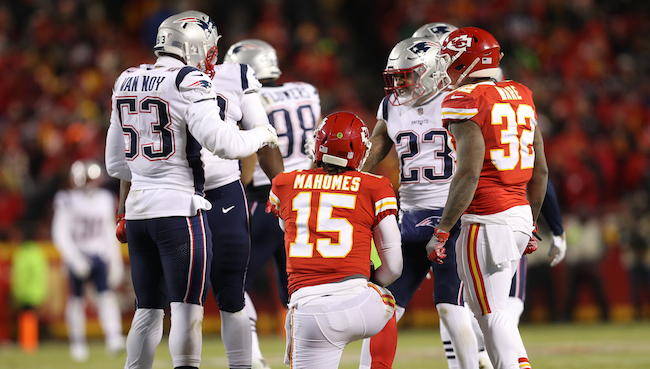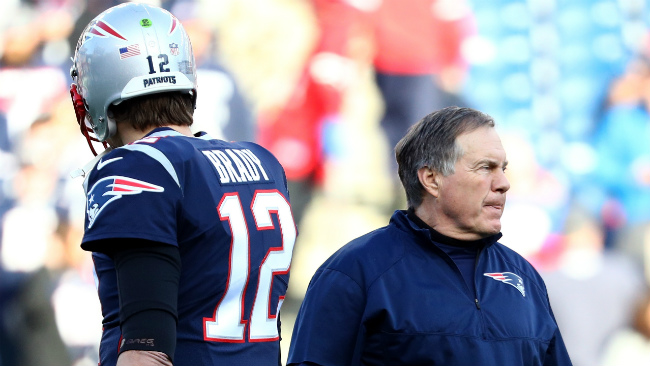
For the first time in NFL history, Conference Championship Sunday featured two overtime games, as the Rams managed to topple the Saints in New Orleans, and the Patriots beat the Chiefs in Kansas City.
The latter result reignited the argument over the NFL’s overtime rules, which allow for the coin toss to be of vital importance to the outcome of the game. A touchdown by any team ends the game, even if it’s a first possession march by the team that wins the toss. A field goal on the first possession can no longer end the game thanks to a recent rule change, but after that, it becomes sudden death.
On Sunday in Arrowhead, Tom Brady and Patrick Mahomes dueled down the stretch in a wildly entertaining fourth quarter that saw the two orchestrating numerous late drives to take the lead and/or tie the game. However, there was a sense that whichever team won the toss was likely to win the game because neither defense had provided much resistance late, and as expected, after the Patriots won the toss, they marched down the field for a touchdown to end the game in rather anti-climactic fashion.
As the inevitable became reality, fans took to social media to complain about the NFL’s overtime rules that prevented us from the drama of Mahomes getting a chance to answer Brady’s drive. Patriots fans are quick to point out this only became a major issue after New England won, insisting its just salty fans that just want to see Brady and the Pats lose. Objectively, they are correct. There is no doubt the overtime rules in the NFL became a hotter topic of discussion because it was the Patriots taking advantage of them and not the Chiefs.

That said, it still doesn’t mean we need to have a conversation about changes. Those that defend the NFL’s overtime rules typically do so by pointing out that defense is part of football and you should have to make stops to win. That is, again, objectively true. However, it seems rather silly that after 60 minutes of a game, the rules change dramatically and what happens is no longer really the same game. Over the course of the first two halves, your offense will have the chance to answer the other team when they score, and it’s ultimately about who can get more stops than the other team, not who can get the first stop — not to mention the ever-changing NFL rules that make it increasingly difficult to get stops on defense.
Some stump for college overtime rules, which are even less like actual football than the NFL’s rules. For chaos purposes, college overtime rules, but it’s even more slanted against defense than the NFL because suddenly it becomes a red zone drill in practice with each team being given alternate possessions on the 25. Not only are you asked to come up with a stop, but you have to do so on an extremely short field. That’s not the answer.
The best solution would seem to be just to put 10 minutes on the clock and have them play it out like a normal game. The coin toss still matters more than maybe it should as the team with the first possession has a better chance of getting more possessions than the opponent, but there’s at least an increasing likelihood that both teams get the ball at least once with a chance for both the offenses and defenses to have a say.
There are some that point to a full overtime being a player safety issue, which is a fair point, but we should extend the break between the fourth quarter and overtime rather than having the captains trot immediately out to midfield for the toss and begin. That would give players time to get some rest and an ample break before having to play more, and the 10-minute overtime period would be shorter than a full overtime that ends in a tie right now — in the playoffs you play multiple 10-minute periods if necessary.
The idea of keeping overtime short is really an effort to get in and out of television windows without overrun into someone else’s TV time, but in the playoffs the issues are magnified because of the stakes. Yes, the discussion was partially sparked by the Patriots being the team to come out on top, but knowing New England if the rules changed they’d lose the toss and be the team to capitalize on updated overtime rules the next time they find themselves playing extra playoff football.






